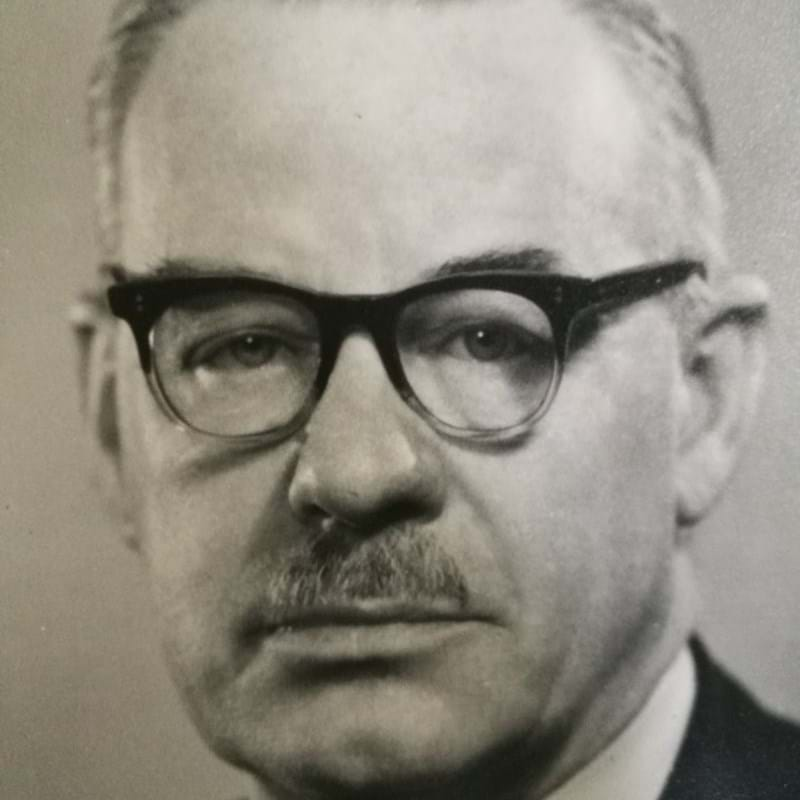
Frank Morton: 1963–1964
Frank Morton received his early education in Manchester, and entered the laboratories of the city analyst at the age of fifteen. By part-time study he continued his chemical training until in 1927 he obtained a scholarship in the University of Manchester to study chemistry. Here he obtained a first class degree and proceeded to both the Masters and Doctors degrees by research. During this period he held a demonstratorship in General Chemical Technology in the Faculty of Technology.
Subsequent to the award of his PhD, he was appointed research chemist to Trinidad Leaseholds Ltd and in 1937 sailed for the West Indies. The outbreak of war found him in the post of Superintendent of Research and Development and so about to begin a period of extreme activity. As a fuelling station for the Navy and a provider of aviation gasoline the role of Trinidad became more critical every month during the war, especially after Pearl Harbour, when its facilities were extended to the Americans. Frank Morton often said that it was during this period of frantic expansion and make-do and mend that he became convinced of the importance and correctness of the chemical engineering approach to the problems of development and production. Frequent flights to conferences on the American mainland exposed him to the impact of chemical engineers trained in that country, and this experience served to strengthen his convictions.
Although by 1948 he was in charge of the whole research and development work of his company, and once more based in Britain, he took the step of entering the academic field where he judged he could assist those few already engaged in establishing chemical engineering as an intellectual discipline. The next eight years as Professor of Chemical Engineering in F H Garner's school in the University of Birmingham witnessed both the post-war expansion of the subject and the foundation of his own research fields in low pressure distillation and solvent extraction. In 1956 he must have experienced a peculiar sense of fulfilment when he was invited to the newly-created chair in his old college, which was now committed to capping a long history of chemical engineering education with an imaginative programme of expansion.
Frank Morton became an Associate Member of the Institution in 1948 and a Member in 1952 and served on Council and as a Vice President. As well as taking on the role of Chairman of the North Western Branch of the Institution, he fulfilled a similar role for the Manchester Section of the Society of Chemical Industry.
Return to list